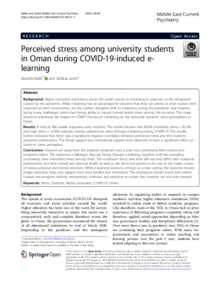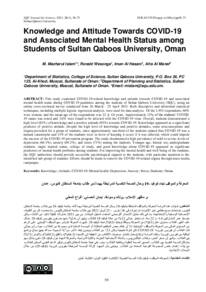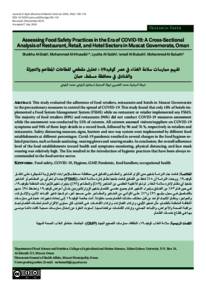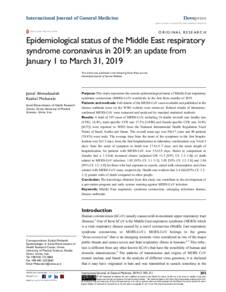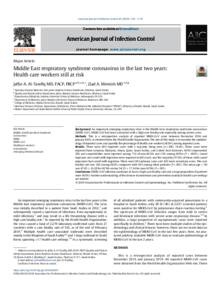Document
Perceived stress among university students in Oman during COVID-19-induced e-learning.
Identifier
DOI: 10.1186/s43045-021-00131-7
Source
Middle East Current Psychiatry. v. 28, 1, 49
Contributors
Javed, Sarfaraz., Author
Country
Germany.
City
Berlin
Publisher
Springer Science and Business Media Deutschland GmbH.
Gregorian
2021-12-01
Language
English
English abstract
Background: Higher education institutions across the world moved to e-learning in response to the disruptions caused by the pandemic. While e-learning has an advantage for students that they can attend to their courses from anywhere at their convenience, yet the sudden disruptive shift to e-learning during the pandemic saw students facing many challenges, which had strong ability to induce mental health issues among the students. This study aimed at examining the impact of COVID-19-induced e-learning on the university students’ stress perceptions in Oman. Results: A total of 966 usable responses were received. The results showed that 96.9% (moderate stress = 82.5% and high stress = 14.4%) reported having experienced stress through e-learning during COVID-19. The results further indicated that there was a significant negative correlation between perceived stress and the students’ academic performance. The family support and institutional support were observed to have a significant effect on students’ stress perception. Conclusions: Students are away from the physical campuses over a year now, continuing their courses and programs online. The numerous challenges they are facing through e-learning, together with the prevailing uncertainty, have intensified stress among them. The continued stress over time will not only affect their academic performance, but their mental and physical health as well, as the stress has proven to be one of the major causes of various physical and mental disorders. While e-learning seems to emerge as a new normal, the students require proper attention, help, and support from their families and institutions. The institutions should revisit their online courses and program delivery mechanisms, methods, and practices to ensure that students are not over stressed.
ISSN
2090-5408
Category
Journal articles

